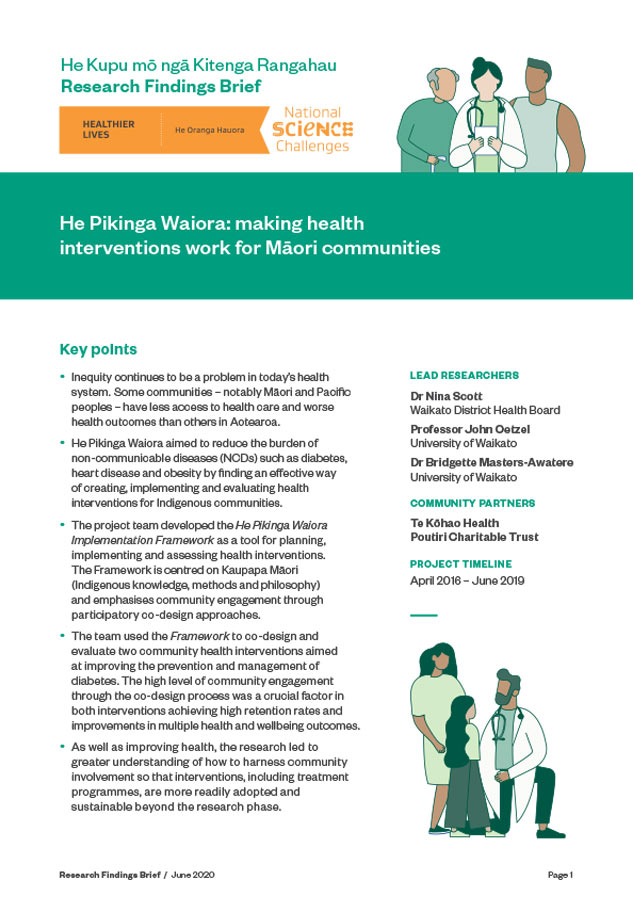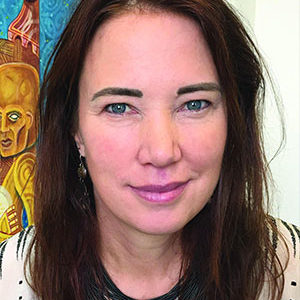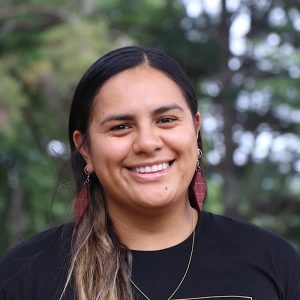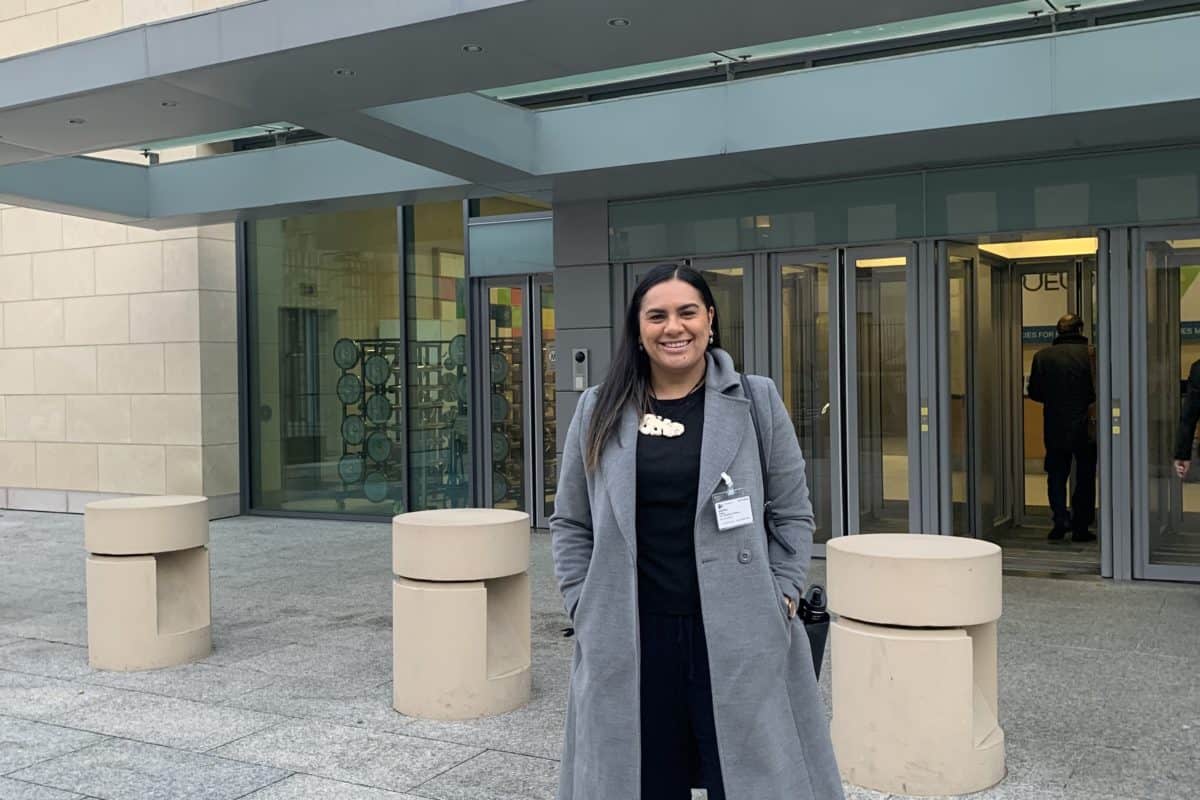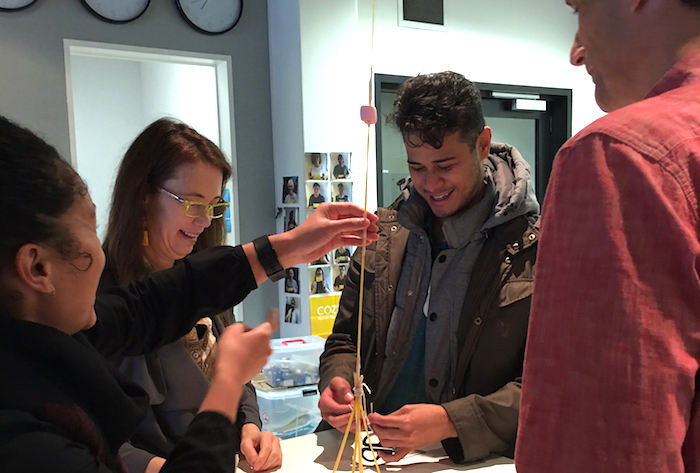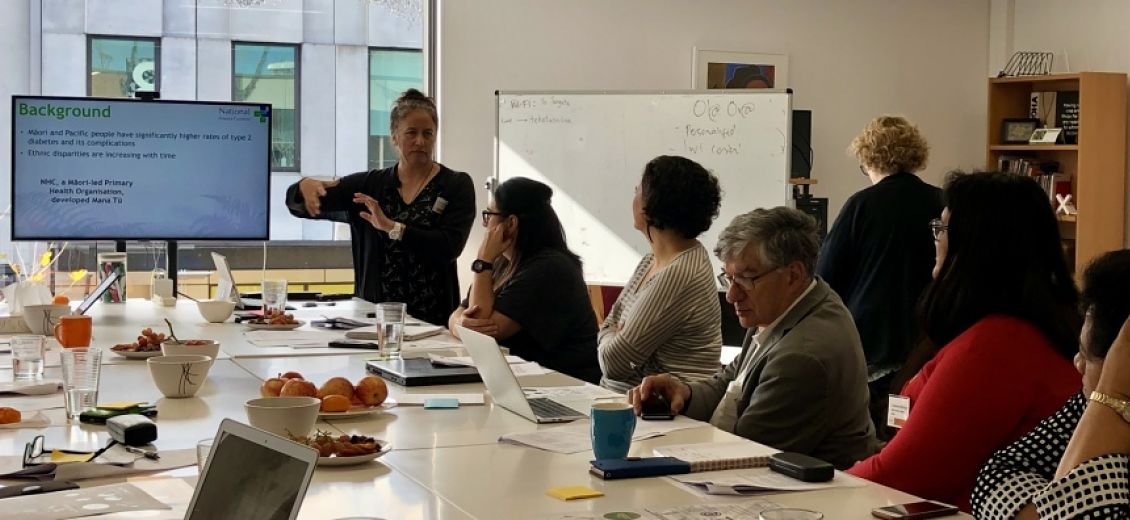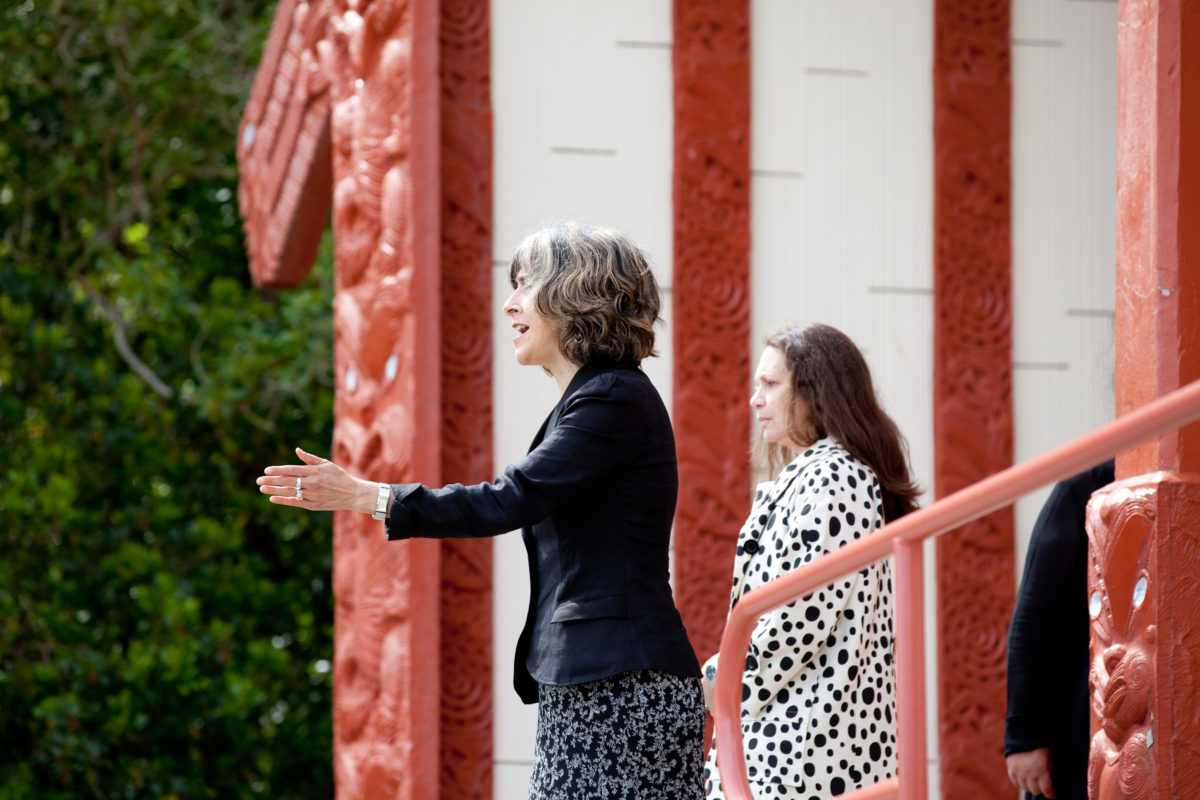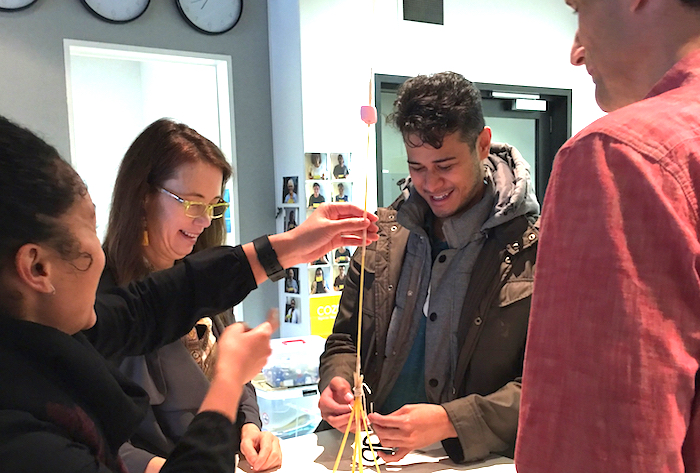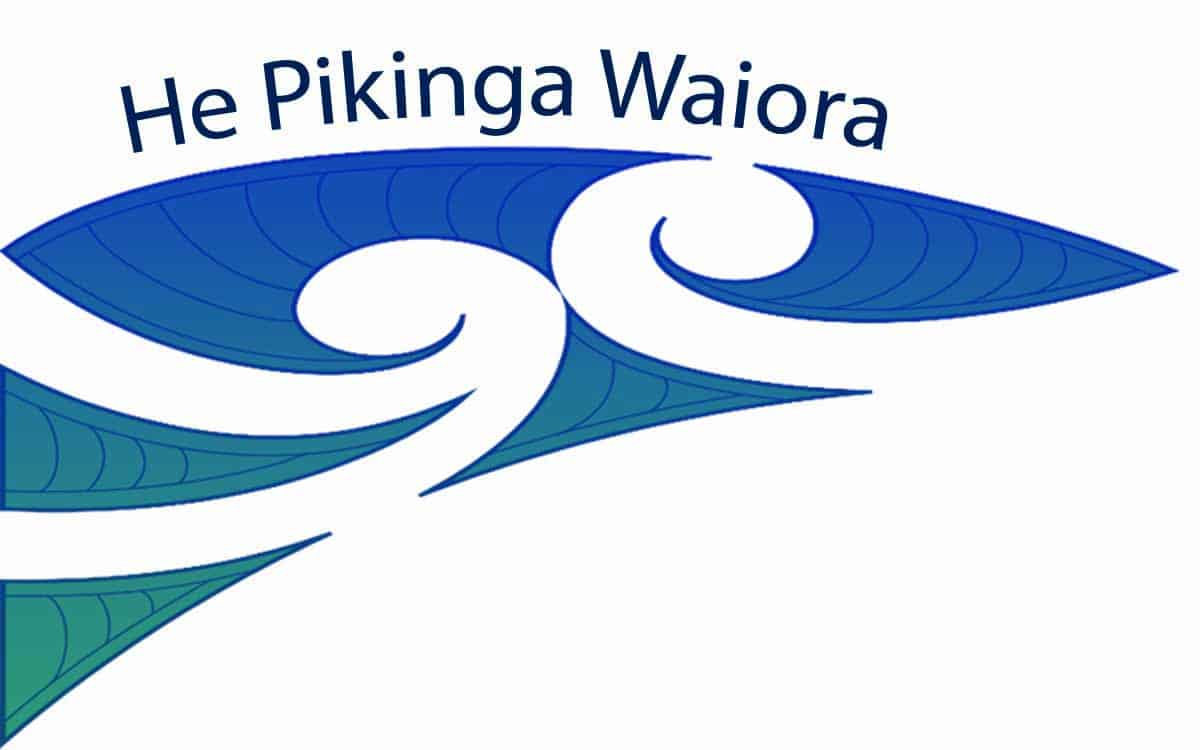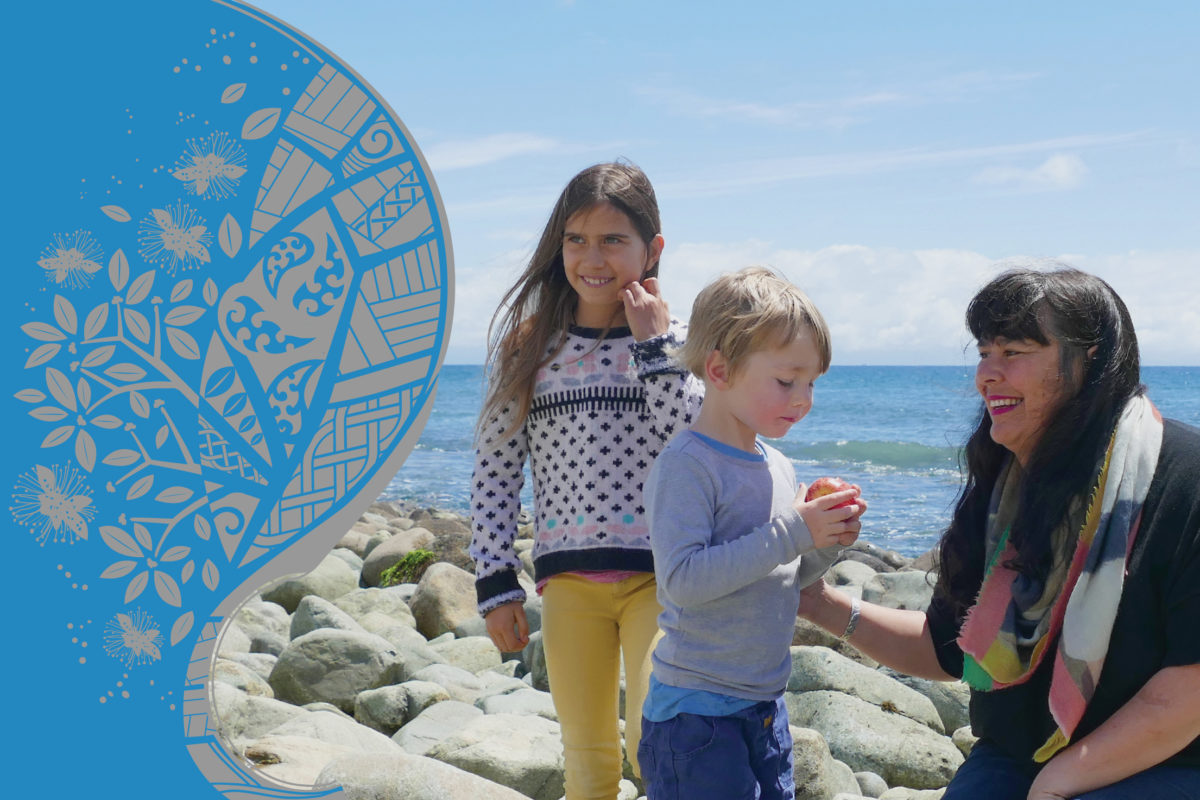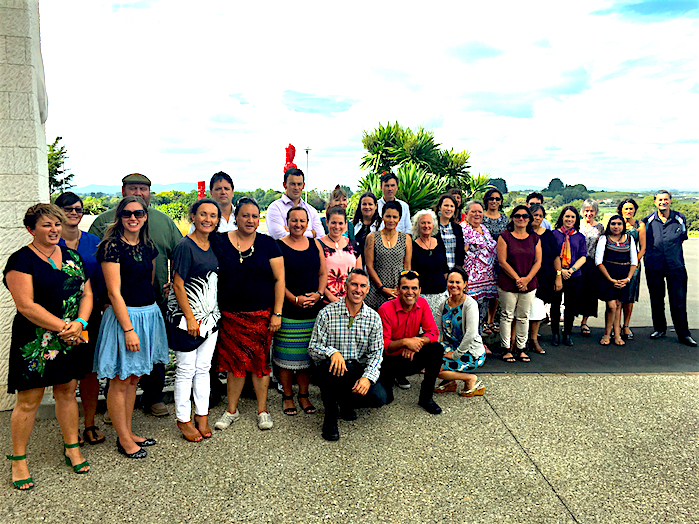HE AHA TĀ MĀTOU I TŪHURA AI
What we investigated
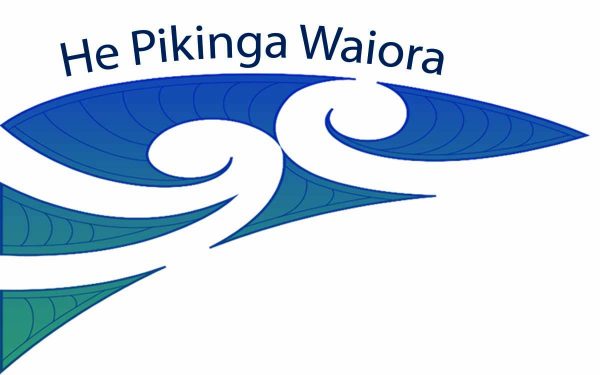
Take | Issue
Inequity is a problem in today’s health system. Some communities – notably Māori and Pacific peoples – have less access to health care and worse health outcomes than others in Aotearoa.
Whāinga | Aim
This project aimed to reduce inequitable health outcomes associated with non-communicable diseases such as diabetes, heart disease and obesity by finding better ways of creating, implementing and evaluating effective health interventions for Indigenous communities.
Huarahi I Whāia | Approach
The project team researched and developed the He Pikinga Waiora Implementation Framework as a tool for funders, health services and community organisations to plan, implement and assess health interventions. The Framework is centred on kaupapa Māori (Indigenous knowledge, methods and philosophy) and integrates best practice from international research, particularly emphasising community engagement through participatory co-design approaches.
The project team used the Framework to co-design and evaluate two separate community-based health interventions aimed at improving the prevention and management of diabetes.
NGA PUTANGA ME TE PĀNGA
Outcomes and Impact
Putanga | Outcome
The He Pikinga Waiora Implementation Framework was widely disseminated, and successfully used to guide the efforts of the National Bowel Screening Advisory Group and the 2016-18 Waitemata District Health Board Abdominal Aortic Aneurysm Screening Pilot. It was also adopted by several research projects working with Indigenous communities in Aotearoa and other countries.
The project team used the Framework to co-design two health interventions with community partners:
-
-
- Kimi Ora – a 10-week programme for people with prediabetes or type 2 diabetes and their whānau, run by Te Kōhao Health
- Poutiri Health Challenge – a 12-week lifestyle intervention to address pre-diabetes and related conditions for men and their whanau, run by the Poutiri Charitable Trust.
-
Both interventions achieved very high retention rates and significant improvements in clinical health indicators, and both have been funded by healthcare providers to continue beyond the research phase.
The high level of community engagement through the co-design process was a crucial factor in the success of both interventions.
As well as improving health, the research led to greater understanding of how to harness community involvement so that interventions and treatment programmes are more readily adopted and sustainable beyond the research phase.
Te Ara Kei Mua | Next Steps
The He Pikinga Waiora Framework is an effective tool for meaningful engagement with community health members and organisations. It provides those involved in planning and funding health services with a means to address health equity issues, and design more effective and sustainable interventions.
Health planners and funders are welcome to contact the research leaders for more details about how to use the Framework.
Nga Hua O Te Rangahau | Research Products
-
-
- He Pikinga Waiora Implementation Framework
- He Pikinga Waiora website, including tools for implementing and evaluating the framework.
-
View the website for this project
WHAKAWHITI MŌHIOTANGA
Knowledge Exchange
Puka Rangahau | Academic Publications
2021
-
-
- Implementation effectiveness of health interventions with Māori communities: A cross-sectional survey of health professional perspectives. Australian & New Zealand Journal of Public Health (2021); 45, 203-209.
- He Pikinga Waiora Kimi Ora lifestyle programme: case study of a successful community-based Indigenous diabetes intervention New Zealand Medical Journal (2021), 134:1545.
-
2020
-
-
- Perceptions of co-designing health promotion interventions with Indigenous communities in New Zealand. Health Promotion International (2020).
-
2019
-
-
- He Pikinga Waiora: Supporting Māori health organisations to respond to pre-diabetes. International Journal for Equity in Health (2019), 18(1).
- What protects against pre-diabetes progressing to diabetes? Observational study of integrated health and social data. Diabetes Research and Clinical Practice (2019), 148:119–129.
- He aha te mea nui o te ao? He tāngata! (What is the most important thing in the world? It is people!). Australian Journal of Primary Health (2019), 25(5):435.
- Critical reflection for researcher–community partnership effectiveness: the He Pikinga Waiora process evaluation tool guiding the implementation of chronic condition interventions in Indigenous communities. Australian Journal of Primary Health (2019), 25(5):478.
- Implementation effectiveness of health interventions for Indigenous communities: a systematic review. Implementation Science (2019), 14(1).
- A case study of using the He Pikinga Waiora Implementation Framework: Challenges and successes in implementing a twelve-week lifestyle intervention to reduce weight in Māori men at risk of diabetes, cardiovascular disease and obesity International Journal of Equity in Health (2020); 19:103.
-
2018
-
-
- Addressing health inequities in cardiovascular health in indigenous communities: Implementation process matters as much as the intervention itself. International Journal of Cardiology (2018), 269:325-326.
-
2017
-
-
- Implementation framework for chronic disease intervention effectiveness in Māori and other indigenous communities. Globalization and Health (2017), 13(1).
-
Kōnae Whakaata | Video
- He Pikinga Waiora webinar hosted by Toi Tangata YouTube, 2016
He pikinga Waiora
Research Findings Brief
He Pikinga Waiora aimed to reduce the burden of non-communicable diseases (NCDs) such as diabetes, heart disease and obesity by finding an effective way of creating, implementing and evaluating health interventions for Indigenous communities.

